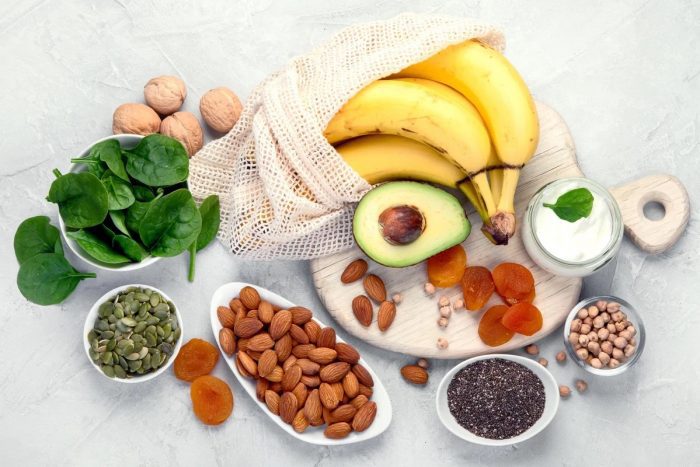Medical Compass: Lifestyle changes can make a difference when you have hypertension
By David Dunaief, M.D.

Hypertension, also commonly called “high blood pressure,” is pervasive in the U.S., affecting approximately 47 percent of adults over 18 (1). Since 2017, hypertension severity has been categorized into three stages, each with its recommended treatment regimen.
One of the most interesting shifts with this recategorization was the recategorization of what we used to call “prehypertension” into what we now call “elevated” blood pressure and “hypertension stage 1.”
Elevated blood pressure is defined as systolic blood pressure (the top number) of 120-129 mmHg and diastolic blood pressure (the bottom number) of less than 80 mmHg, while Stage 1 includes systolic blood pressure of 130-139 mmHg or diastolic blood pressure of 80-89 mmHg (2). A simple chart of all levels can be found on The American Heart Association’s website at www.heart.org.
Both elevated blood pressure and stage 1 hypertension have significant consequences, even though there are often no symptoms. For example, they increase the risks of cardiovascular disease and heart attack dramatically.
In an analysis of the Framingham Heart Study, researchers found a 3.5-fold increase in the risk of heart attack and a 1.7-fold increase in the risk of cardiovascular disease among those with prehypertension (3). This is why it’s crucial to address it, even in these early stages.
Another study, the Women’s Health Initiative, which followed more than 60,000 postmenopausal women for an average of 7.7 years, showed an increase in heart attack deaths, heart attacks and strokes compared to those with normal blood pressure (less than 120/80 mmHg). In the Strong Heart Study, prehypertension independently increased the risk for cardiovascular events at 12 years significantly (4).
The good news is that, over the last decade, new and extended studies have given us better clarity about treatments, stratifying approaches to ensure the best outcomes.
Do you need to treat elevated blood pressure?
In my view, it would be foolish not to treat elevated blood pressure. Updated treatment recommendations, according to the Joint National Commission (JNC) 8, the association responsible for guidelines on the treatment of hypertension, include lifestyle modifications (5).
Lifestyle changes include dietary changes. A Mediterranean-type diet or the DASH (Dietary Approaches to Stop Hypertension) diet are both options. It’s important to focus on fruits, vegetables, sodium reduction to a maximum of 1500 mg (2/3 of a teaspoon on a daily basis), exercise, weight loss and no more than moderate amounts of alcohol (1 or fewer drinks for women and 2 or fewer drinks for men on a daily basis) (6).
Some studies have also shown that a diet rich in potassium helps to reduce blood pressure (7). Fortunately, foods like fruits, vegetables, beans and legumes have significant amounts of potassium. However, do not take potassium supplements unless instructed for other reasons by a physician; high potassium can be very dangerous and may precipitate a heart attack.
Some drugmakers advocate for using medication with those who have elevated blood pressure. The Trial of Preventing Hypertension (TROPHY) suggests the use of a hypotensive agent, the blood pressure drug Atacand (candesartan) to treat prehypertensive patients (8)(9). The drug reduced the incidence of hypertension significantly compared to placebo over two years. However, after stopping therapy, the following two years showed only a small benefit over placebo. Still, the authors implied that this may be a plausible treatment. The study was funded by Astra-Zeneca, which makes the drug.
In an editorial, Jay I. Meltze, M.D., a clinical specialist in hypertension at Columbia University’s College of Physicians and Surgeons, noted that the results were interpreted in an unusually favorable way (10).
Elevated blood pressure has been shown to respond well to lifestyle changes – so why add medication when there are no long-term benefits? I don’t recommend treating elevated blood pressure patients with medication. Thankfully, the JNC8 agrees.
Do lifestyle changes help with Stage 1 hypertension?
For those with Stage 1 hypertension, but with a low 10-year risk of cardiovascular events, these same lifestyle modifications should be implemented for three-to-six months. At this point, a reassessment of risk and blood pressure should determine whether the patient should continue with lifestyle changes or needs to be treated with medications (11).
It’s important to note that your risk should be assessed by your physician.
I am encouraged that the role of lifestyle modifications in controlling hypertension has been recognized and is influencing official recommendations. When patients and physicians collaborate on a lifestyle approach that drives improvements, the side effects are only better overall health.
References:
(1) cdc.gov. (2) heart.org. (3) Stroke 2005; 36: 1859–1863. (4) Hypertension 2006;47:410-414. (5) Am Fam Physician. 2014 Oct 1;90(7):503-504. (6) J Am Coll Cardiol. 2018 May, 71 (19) 2176–2198. (7) Archives of Internal Medicine 2001;161:589-593. (8) N Engl J Med. 2006;354:1685-1697. (9) J Am Soc Hypertens. Jan-Feb 2008;2(1):39-43. (10) Am J Hypertens. 2006;19:1098-1100. (11) Hypertension. 2021 Jun;77(6):e58-e67.
Dr. David Dunaief is a speaker, author and local lifestyle medicine physician focusing on the integration of medicine, nutrition, fitness and stress management. For further information, visit www.medicalcompassmd.com or consult your personal physician.







